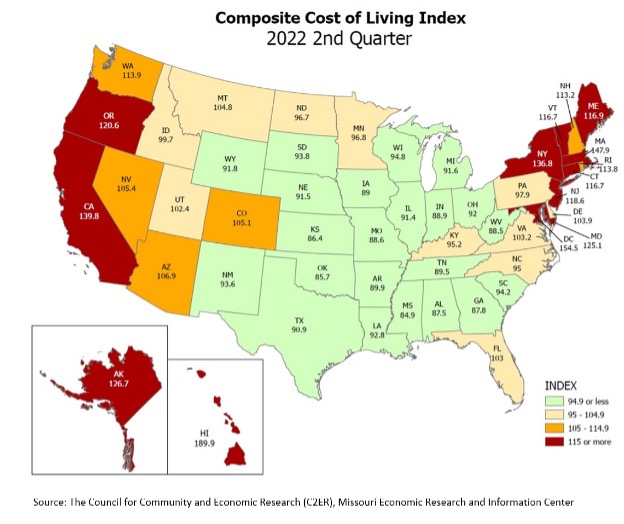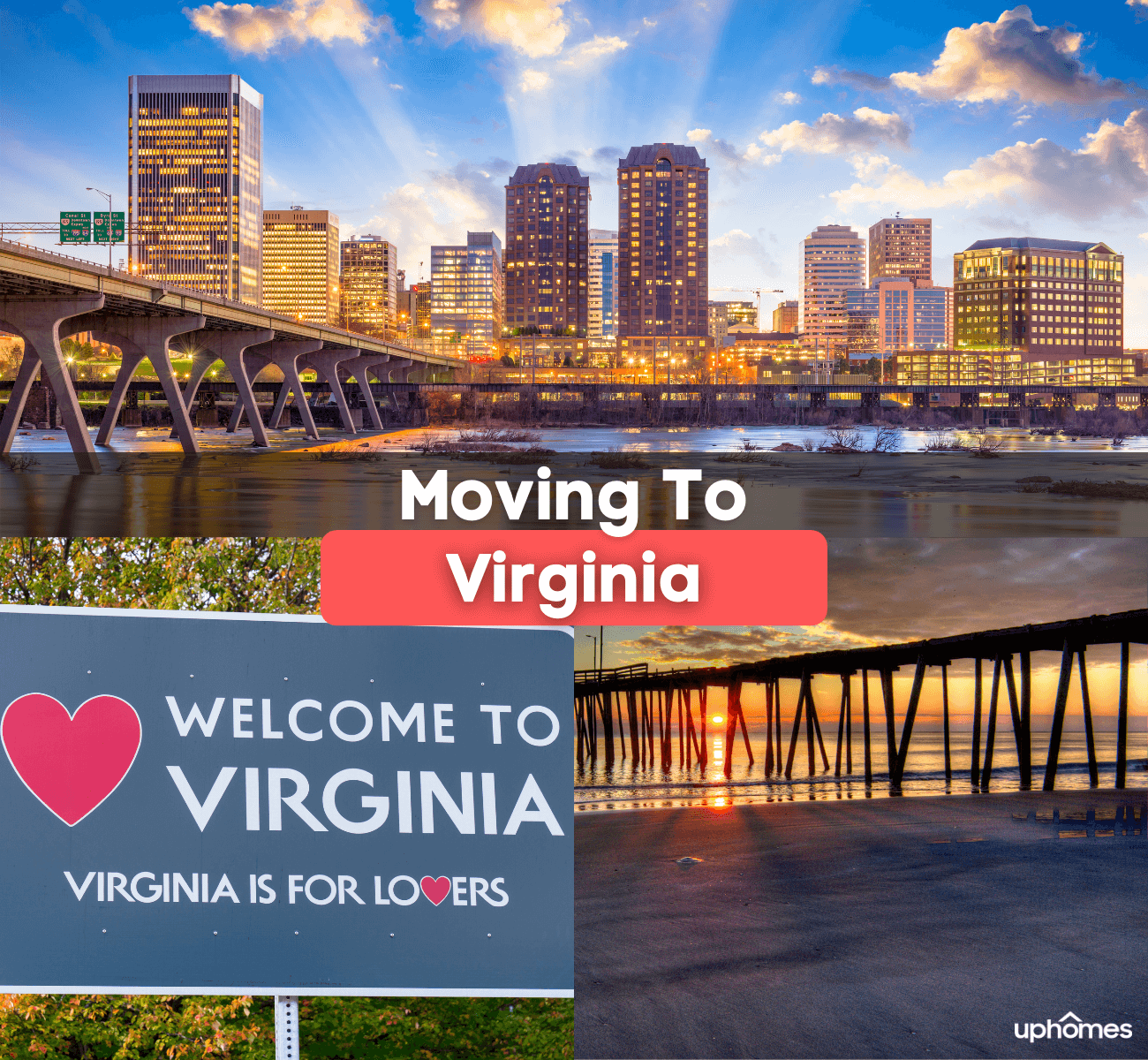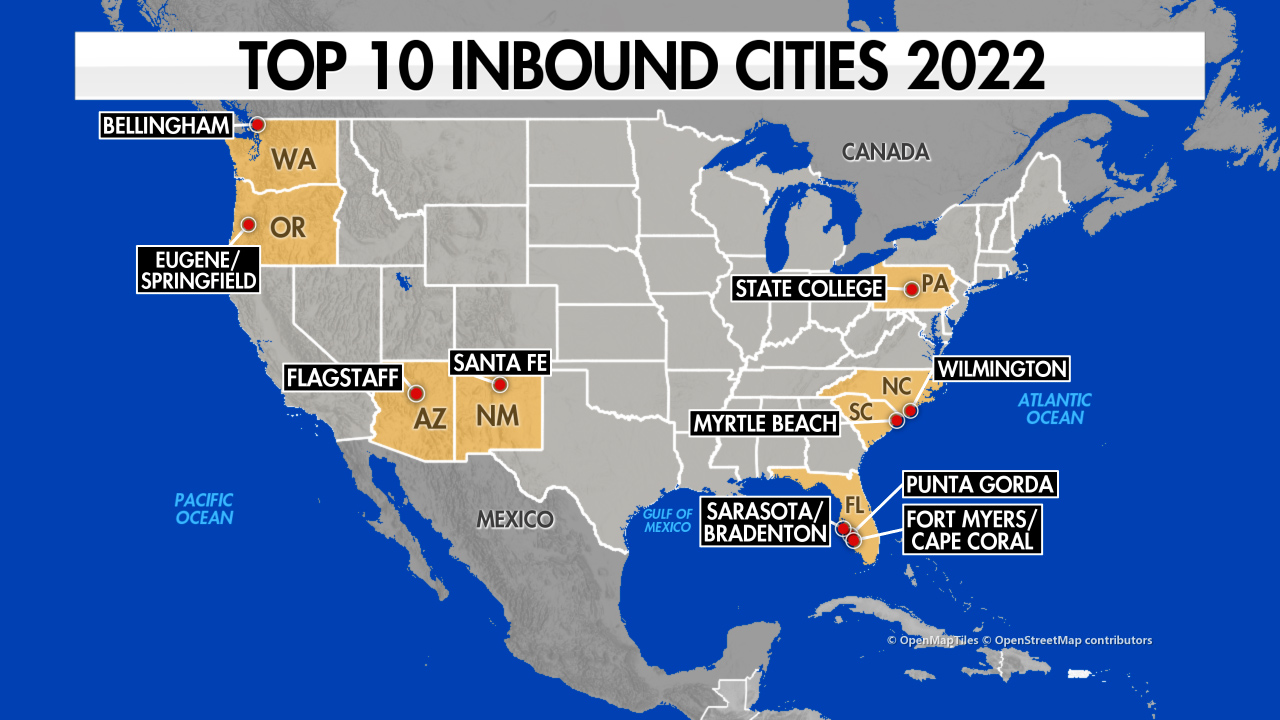Moving From Texas To Virginia
Relocating to a new state can be a daunting task, especially when leaving behind the familiarity of a place like Texas. But for those making the move to Virginia, the excitement of exploring a new region is tempered by the reality of navigating unfamiliar terrain. From understanding the local culture to finding the best neighborhoods and amenities, there's a lot to learn when making the transition from the Lone Star State to the Old Dominion. In this article, we'll provide a comprehensive guide to help you make a smooth and successful move from Texas to Virginia.

Embracing a New Chapter: Moving from Texas to Virginia
Moving from Texas to Virginia can be a significant change, but with the right mindset and preparation, it can be a fantastic opportunity for personal and professional growth. Here are some key aspects to consider when making this transition:
Cost of Living: A Comparison
One of the most significant differences between Texas and Virginia is the cost of living. Virginia has a higher cost of living index, with housing costs being particularly high. However, the state also has a higher median income, which can help offset the increased expenses. It's essential to factor in the cost of living when planning your move, so you can budget accordingly and make the most of your relocation.
Tax Implications
Texas is known for its low taxes, while Virginia has a more moderate tax environment. As a resident of Virginia, you'll be subject to a state income tax, which can range from 2% to 5.75%. Additionally, Virginia has a higher sales tax rate than Texas. Understanding the tax implications of your move can help you prepare for the financial changes ahead.
Job Opportunities and Industry
Virginia is home to a diverse range of industries, including technology, defense, and healthcare. The state is also a hub for government contracting and has a strong presence of federal agencies. If you're in one of these industries, you may find more job opportunities in Virginia than in Texas. However, it's essential to research the job market and understand the competition before making the move.
Culture and Lifestyle
Virginia has a rich history and a more traditional East Coast culture, which can be quite different from the laid-back, cowboy-inspired vibe of Texas. From the scenic Blue Ridge Mountains to the bustling streets of Arlington, Virginia offers a unique blend of urban and rural living. You'll find a wide range of cultural attractions, outdoor activities, and a thriving food scene, but you may need to adjust to a more fast-paced lifestyle.
Education and Healthcare
Virginia is known for its excellent education system, with some of the top-ranked public schools in the country. The state is also home to several prestigious universities, including the University of Virginia and Virginia Tech. When it comes to healthcare, Virginia has a high-quality medical system, with several top-ranked hospitals and medical centers. Understanding the education and healthcare options in Virginia can help you make an informed decision about your move.
| Category | Texas | Virginia |
|---|---|---|
| Cost of Living Index | 91.2 | 102.2 |
| Median Household Income | $59,206 | $71,535 |
| State Income Tax Rate | None | 2% - 5.75% |
| Unemployment Rate | 3.4% | 2.6% |
Note: The data in the table is subject to change and may not reflect the current numbers. It's essential to research and verify the information before making a decision.
Is it cheaper to live in Virginia or Texas?

Comparing the Cost of Living in Virginia and Texas
The cost of living in Virginia versus Texas can vary significantly depending on several factors, including lifestyle, location, and personal preferences. Here's a breakdown of the main differences:
Housing Costs
The cost of housing is a significant factor in determining the overall affordability of a state. In Virginia, the median home price is around $340,000, with average rent for a one-bedroom apartment at $1,400 per month. In contrast, the median home price in Texas is around $240,000, with average rent for a one-bedroom apartment at $1,100 per month.
- The median home price in Virginia is higher than in Texas, mainly due to the high demand for housing in urban areas like Arlington and Alexandria.
- Texas has a more affordable housing market, with lower median home prices and rent rates compared to Virginia.
- However, housing costs can vary significantly depending on the location, with cities like Houston and Dallas in Texas having higher housing costs than smaller towns in Virginia.
Taxes and Utilities
Taxes and utilities are another important consideration when evaluating the cost of living in Virginia and Texas. Virginia has a 5.75% state income tax rate, while Texas has no state income tax. However, Texas makes up for this with higher property taxes, with an average effective property tax rate of 1.86% compared to Virginia's 0.83%.
- Texas has no state income tax, which can result in significant savings for individuals and families.
- Virginia has a higher state income tax rate, which can increase the overall cost of living.
- However, Texas has higher property taxes, which can offset some of the savings from the lack of state income tax.
Lifestyle and Transportation
Finally, lifestyle and transportation costs can also vary between Virginia and Texas. Virginia is known for its high cost of living, particularly in the Washington D.C. metropolitan area, with higher prices for food, transportation, and entertainment. Texas, on the other hand, has a more affordable lifestyle, with lower prices for food and transportation.
- Virginia has a higher cost of living, particularly in urban areas, which can increase the overall cost of living.
- Texas has a more affordable lifestyle, with lower prices for food, transportation, and entertainment.
- However, transportation costs in Texas can be higher due to the state's large size and limited public transportation options.
What is the cheapest way to move from Texas to Virginia?
Moving from Texas to Virginia can be a significant undertaking, and one of the primary concerns is the cost. The cheapest way to move from Texas to Virginia will depend on several factors, including the distance, weight, and type of items you are moving, as well as the mode of transportation and level of service you require.
DIY Moving vs. Hiring a Professional Mover
When considering the cheapest way to move from Texas to Virginia, one of the first decisions you'll need to make is whether to do it yourself (DIY) or hire a professional mover. While DIY moving may seem like the most cost-effective option, it's essential to consider the time, effort, and potential risks involved. Here are some pros and cons of each option:
- DIY Moving: You'll need to rent a moving truck, purchase moving supplies, and recruit friends or family to help with the move. This option can be cost-effective, but it requires a significant amount of time and effort.
- Hiring a Professional Mover: A professional moving company will handle the entire move, from packing to transporting your belongings. While this option is more expensive, it can save you time and reduce the risk of damage or loss.
Cost-Effective Moving Options
If you're looking for a cost-effective way to move from Texas to Virginia, consider the following options:
- Portable Containers: Portable containers are a popular choice for long-distance moves. The container is delivered to your home, and you pack it at your own pace. The company then transports the container to your new location.
- Freight Trailer Moving: Freight trailer moving involves loading your items into a trailer, which is then transported to your new location. This option is often cheaper than hiring a full-service moving company.
- Peer-to-Peer Moving: Peer-to-peer moving platforms connect individuals who need to move with people who have space in their moving trucks. This option can be a cost-effective way to move, especially for smaller loads.
Additional Cost-Saving Tips
To further reduce the cost of your move from Texas to Virginia, consider the following tips:
- Downsize Your Belongings: The less you move, the less you'll pay. Consider donating, selling, or throwing away items you no longer need or use.
- Choose the Right Moving Date: Moving during the off-season (winter) or during the middle of the month can be cheaper than moving during peak season (summer) or at the beginning of the month.
- Pack Your Own Items: Packing your own items can save you money on packing costs. Just be sure to use sturdy boxes and packing materials to prevent damage during transit.
Is Virginia a good state to move in?

Is Virginia a Good State to Move In?
Virginia is a popular destination for those looking to relocate, and for good reason. The state offers a unique blend of history, culture, and natural beauty, making it an attractive option for people from all walks of life. From its scenic mountains to its bustling cities, Virginia has something to offer everyone.
Economic Stability
One of the primary considerations for anyone thinking of moving to Virginia is the state of its economy. Fortunately, Virginia boasts a strong and diverse economy, with a mix of industries such as technology, healthcare, and defense. This diversity helps to ensure that the state is well-equipped to weather economic downturns, making it an attractive option for those looking for job security.
Low Unemployment Rate: Virginia has consistently had a lower unemployment rate than the national average, making it easier to find work in the state.
High Median Income: The median household income in Virginia is higher than the national average, allowing residents to enjoy a higher standard of living.
Diverse Industry Base: The state's diverse economy means that job opportunities are available in a wide range of fields, from technology to healthcare.
Education and Healthcare
Virginia is home to some of the best schools and universities in the country, making it an ideal destination for families and students alike. The state is also known for its high-quality healthcare system, with top-ranked hospitals and medical centers.
Top-Ranked Universities: Virginia is home to some of the top-ranked universities in the country, including the University of Virginia and Virginia Tech.
Excellent School Systems: The state's public school system is highly rated, with many schools consistently ranking among the best in the country.
World-Class Medical Facilities: Virginia is home to top-ranked hospitals and medical centers, including the University of Virginia Health System and the Virginia Commonwealth University Medical Center.
Natural Beauty and Outdoor Activities
Virginia is a nature lover's paradise, with its scenic mountains, rolling hills, and stunning coastline. The state offers a wide range of outdoor activities, from hiking and camping to surfing and fishing.
Scenic Mountains: The Blue Ridge Mountains offer endless opportunities for hiking, camping, and outdoor adventure.
Beautiful Coastline: Virginia's coastline offers a range of activities, including surfing, fishing, and beachgoing.
Parks and Recreation: The state has a comprehensive park system, with many parks and recreation areas offering opportunities for outdoor fun.
What is the best state to move to from Texas?

The best state to move to from Texas depends on various factors such as job opportunities, cost of living, climate, and personal preferences. However, based on various studies and data, here are some of the top states to consider:
States with Strong Job Markets
If you're looking for a state with a strong job market, consider the following:
- Colorado: With a thriving tech industry and a strong economy, Colorado offers many job opportunities, especially in cities like Denver and Boulder.
- Washington: Known for its tech giants like Amazon and Microsoft, Washington state offers a diverse range of job opportunities, especially in the Seattle area.
- Massachusetts: With a strong biotech industry and many top-ranked universities, Massachusetts offers many job opportunities, especially in the Boston area.
States with a Lower Cost of Living
If you're looking for a state with a lower cost of living, consider the following:
- Oklahoma: With a lower cost of living and a growing economy, Oklahoma is an attractive option, especially for those who want to escape the high costs of living in Texas cities like Austin and Houston.
- Arkansas: With a low cost of living and a growing tourism industry, Arkansas is a great option for those who want to enjoy the natural beauty of the Ozark Mountains.
- Tennessee: With a low cost of living and a thriving music scene, Tennessee is an attractive option, especially for those who want to experience the vibrant city of Nashville.
States with a Similar Climate
If you're looking for a state with a similar climate to Texas, consider the following:
- Arizona: With its desert climate and warm winters, Arizona is a great option for those who love the Texas heat.
- New Mexico: With its dry climate and mild winters, New Mexico is an attractive option for those who want to experience the beauty of the Southwest.
- Georgia: With its humid subtropical climate and mild winters, Georgia is a great option for those who want to experience the charm of the South.
FAQ
What are the main differences in cost of living between Texas and Virginia?
When considering a move from Texas to Virginia, one of the most significant factors to think about is the cost of living. While Texas is known for being a relatively affordable state, Virginia has a slightly higher cost of living, especially when it comes to housing and taxes. The median home price in Virginia is around $290,000, compared to $230,000 in Texas. Additionally, Virginia has a higher state income tax rate, ranging from 2% to 5.75%, while Texas has no state income tax. However, Virginia's lower sales tax rate (5.3% compared to Texas' 8.25%) might help offset some of the costs. It's essential to factor in these differences when planning your move and creating a budget that works for you.
How do the job markets in Texas and Virginia compare?
Both Texas and Virginia have thriving job markets, but they differ in terms of industry dominance and unemployment rates. Texas has a strong energy sector, with many major oil and gas companies headquartered in Houston. Additionally, the state is home to a growing tech industry, with cities like Austin and Dallas becoming hubs for startups and major tech companies. Virginia, on the other hand, has a significant presence of defense contractors and government agencies, with many located in the Washington D.C. metropolitan area. The unemployment rate in Virginia is slightly lower than in Texas, with 2.6% compared to 3.4%. When moving to Virginia, it's crucial to consider the job opportunities in your field and the local economy.
What are the best cities to live in Virginia for someone moving from Texas?
When moving from Texas to Virginia, you'll want to consider the best cities to live in based on your lifestyle, career, and personal preferences. Arlington and Alexandria are popular choices for those who want to be close to Washington D.C. and enjoy the urban amenities of the capital city. Richmond, the state capital, offers a more affordable cost of living and a rich history, while Charlottesville is known for its natural beauty and outdoor recreational opportunities. Virginia Beach is a great option for those who love the coast and want to experience a more relaxed, beach-town vibe. Each city has its unique character, so it's essential to research and visit each place before making a decision.
How do the education systems in Texas and Virginia compare?
Both Texas and Virginia have strong education systems, but there are some differences to consider when making a move. Texas is known for its large, well-funded public school districts, with many highly rated schools in cities like Austin and Dallas. Virginia, on the other hand, has a more decentralized approach to education, with a greater emphasis on magnet schools and charter schools. The state also has a strong network of community colleges and public universities, including the University of Virginia and Virginia Tech. Additionally, Virginia has a higher high school graduation rate (91.6% compared to Texas' 89.7%) and a higher average SAT score. When choosing a new home in Virginia, consider the local school district and its reputation, as well as the availability of higher education options.